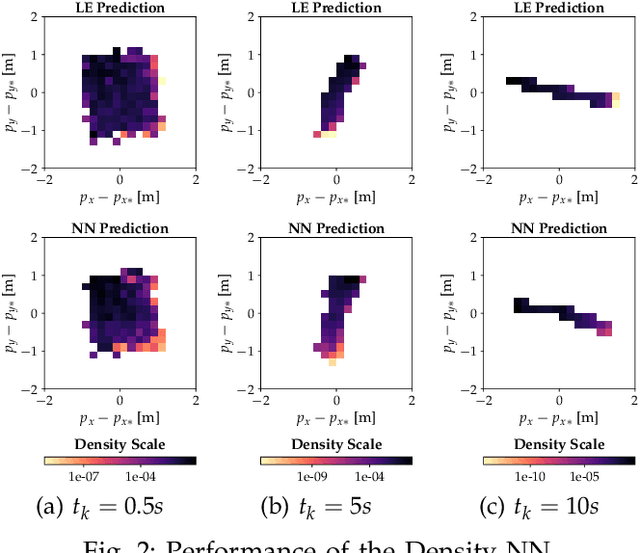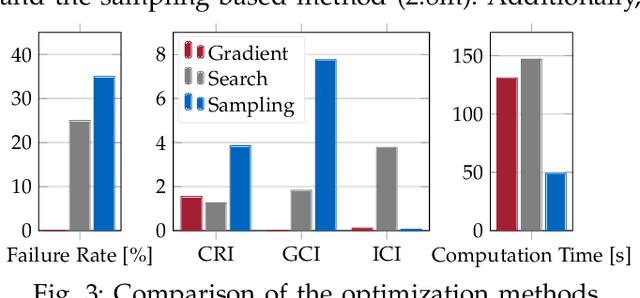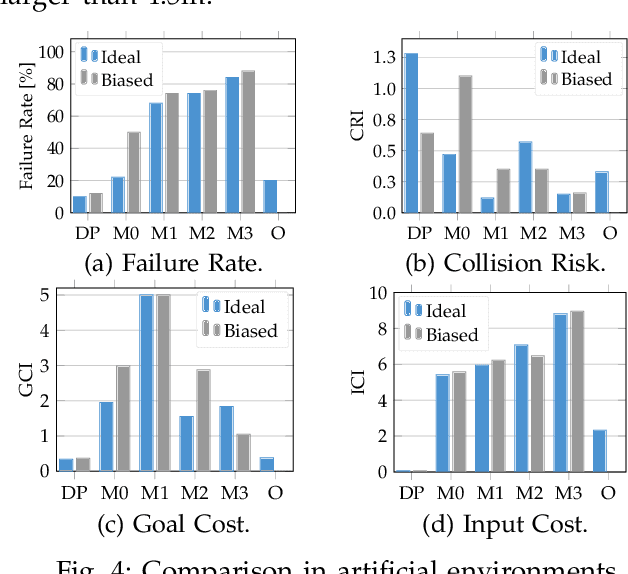Andres Chavez Armijos
Density Planner: Minimizing Collision Risk in Motion Planning with Dynamic Obstacles using Density-based Reachability
Oct 05, 2022



Abstract:Autonomous systems with uncertainties are prevalent in robotics. However, ensuring the safety of those systems is challenging due to sophisticated dynamics and the hardness to predict future states. Usually, a classical motion planning method considering all possible states will not find a feasible path in crowded environments. To overcome this conservativeness, we propose a density-based method. The proposed method uses a neural network and the Liouville equation to learn the density evolution, and by applying a gradient-based optimization procedure, we can plan for feasible and probably safe trajectories to minimize the collision risk. We conduct experiments on simulated environments and environments generated from real-world data and outperform baseline methods such as model predictive control (MPC) and nonlinear programming (NLP). While our method requires planning time in advance, the online computational complexity is very low when compared to other methods.
 Add to Chrome
Add to Chrome Add to Firefox
Add to Firefox Add to Edge
Add to Edge